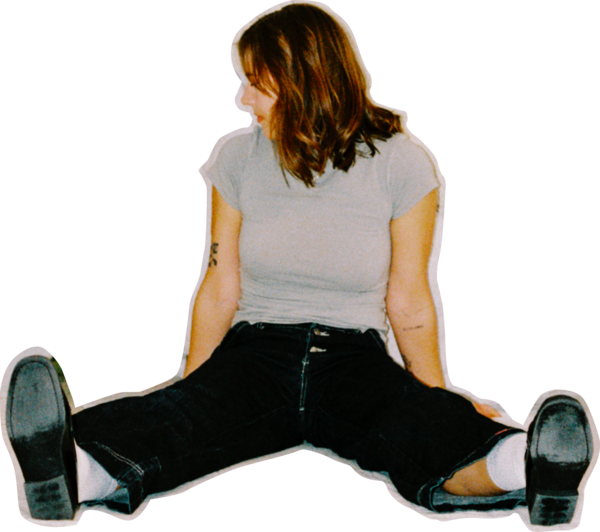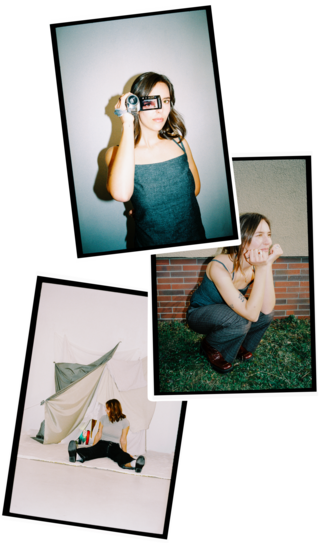Lea Willms

























With her unique blend of alternative-pop, indie and contemporary folk, Lea Willms’s craft pays homage to singer-songwriter traditions while adding a modern edge, creating a sound that feels both timeless and refreshingly new.
The folky lushness of Lea’s sound can be traced back to her roots in a small town on the banks of the river Rhine. Entranced by her parents' favourite artists (including Bob Dylan, Neil Young, and The Beatles), and struck by their ability to translate abstract emotion into words and sound, as a child, Lea began to pour her own feelings into scribbled lines on spiral notepads. These lines would become poems, and these poems became songs when she picked up her first guitar aged 14.
As in all good German fairytales, we follow Lea’s sound into the shadows. Despite its sweetness, Lea’s artistry is emboldened by a fierce courage to pull back the covers and face the monsters hidden beneath. Her lyrics handle messy emotion with sensitivity, as if she picks apart thorny tangles of vines to let the light in, bruising and tearing her fingertips in the process.
Answering her own call to the unknown, at age 19, Lea moved to Manchester. Here, Lea found herself for the first time in a creative community, learning from and collaborating with other artists. The four years Lea spent in Manchester studded the softness of her sound with a metallic, harder inflexion -like an iron brand of the city’s rebellious indie spirit.
In the past two years, she’s been recording her forthcoming album, “Marbles”, at Sloe Flower Studio in Chester, England, with producer James Wyatt. The album weaves together the sounds and places that have marked her journey so far, and, as the name suggests, documents the emotional knocks and collisions of navigating your early 20s. Themes such as love, loss, identity and doubt crash into one another, producing constellations of sparkling sounds. Despite the delicacy of the material, the output is nostalgic, clear and unbroken.
Currently based in Berlin, Lea’s quietly captivating performances compel her listeners to be still in a city running from its pain. In a city that also has a reputation for coldness, Lea’s introspective storytelling and evocative melodies draws her audience in, and holds their attention in a warm embrace.
Written by Alice Gee
